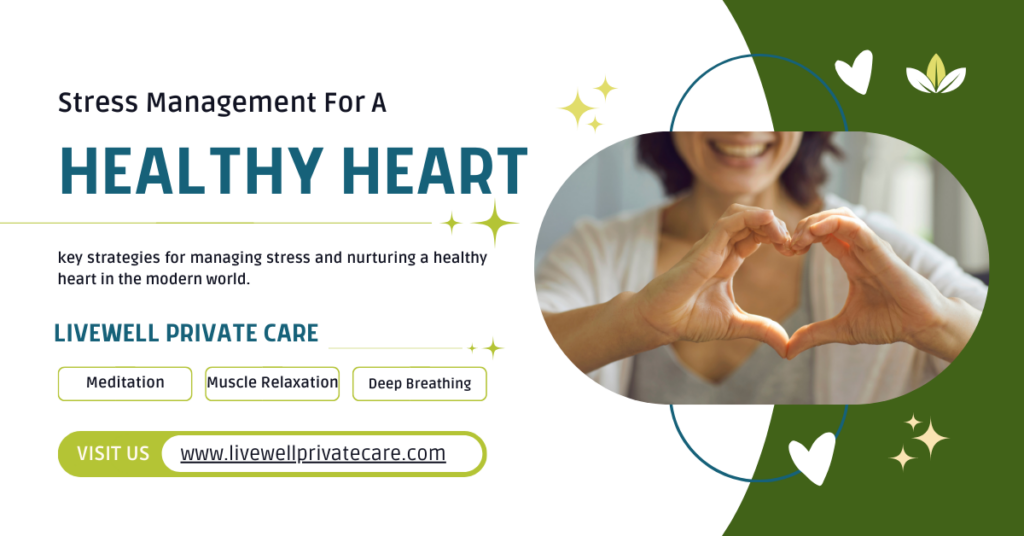Stress Management for a Healthy Heart: Strategies for Modern Living

In today’s fast-paced world, stress has become an inevitable part of our daily lives. From work deadlines to personal responsibilities, our pressures can affect our mental and physical well-being. While occasional stress is normal, chronic stress can harm our heart health. However, incorporating effective stress management techniques into our lives can safeguard our hearts and promote overall wellness.
In this article, we’ll explore some key strategies for managing stress management for a healthy heart in the modern world.
1. Mindfulness Meditation:
Firstly, mindfulness meditation is a powerful technique focusing on the present moment without judgment. By practicing mindfulness regularly, you can train your mind to become more aware of your thoughts and emotions, allowing you to respond to stressors calmly and composedly. Research has shown that mindfulness meditation can help reduce stress. Similarly, it can lower blood pressure and improve heart health. Start by dedicating a few minutes daily to mindfulness meditation. Gradually increase the duration as you become more comfortable with the practice.
2. Deep Breathing Exercises:
Equally important, deep breathing exercises are simple yet effective tools for promoting relaxation and reducing stress. Taking slow, deep breaths can activate the body’s relaxation response, which helps lower heart rate and blood pressure. Try practicing deep breathing exercises whenever you feel stressed or overwhelmed. One technique involves inhaling deeply through your nose for a count of four to help in stress management. Holding your breath for a count of four, then exhale slowly through your mouth for eight. Repeat this cycle several times until you feel more relaxed and centered.
3. Progressive Muscle Relaxation For Stress Management:
Progressive muscle relaxation is a technique that involves tensing and then relaxing different muscle groups in the body to release tension and promote relaxation. Start by finding a comfortable position and focusing on your breathing. Then, gradually tense each muscle group, one at a time, for a few seconds before releasing the tension and allowing the muscles to relax completely. Begin with your toes and work your way up to your head. Paying attention to any areas of tension or discomfort along the way. Progressive muscle relaxation can help reduce stress, relieve muscle tension, and improve overall well-being.
4. Guided Imagery:
Guided imagery is a relaxation technique that uses mental images to promote relaxation and reduce stress. Close your eyes and imagine yourself in a peaceful, serene environment like a tranquil beach or forest. Similarly, you can focus on engaging your senses as you visualize your chosen location’s sights, sounds, smells, and sensations. For stress management, you need to allow yourself to be fully immersed in the experience. Letting go of any worries or concerns weighing on your mind. Guided imagery can help calm the mind. Reduce stress and promote inner peace and well-being.
Here’s an informative read from our Joy in Aging Blog on modifying the lifestyle risk factors associated with heart disease.
In conclusion, stress management is essential for maintaining a healthy heart in the modern world. Incorporating mindfulness, meditation, deep breathing exercises, progressive muscle relaxation, and guided imagery into your daily routine can reduce stress, promote relaxation, and nurture your heart health.
At Livewell Private Care, we encourage you to remember to prioritize self-care and make time for activities that bring you joy and relaxation. Your heart will thank you for it.
